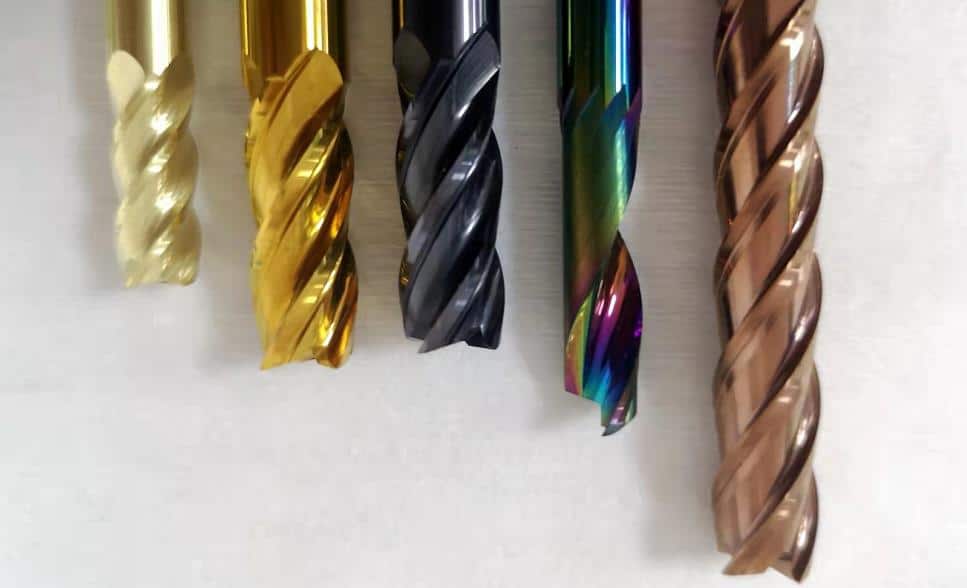Difference between titanium nitride coating and zirconium nitride coating

TiN titanium nitride coatings and ZrN zirconium nitride coatings have similar coating properties because the major elements are in the same group on the periodic table. However, the price of zirconium nitride is higher than that of titanium nitride, so it becomes a minority coating and is not common.
zirconium nitridedroplet-freeBetter than titanium nitride
Zirconium (Zr) is a silvery, hard, friable metal with a high melting temperature (1852ºC) and an extremely high boiling temperature (4377ºC).
Titanium (Ti) is a silvery-white transition metal characterized by light weight, high strength and resistance to corrosion by wet chlorine gas. It has a high melting temperature (1660ºC) and a high boiling temperature (3287ºC).
The high boiling point reduces the tendency for droplet formation during "unguided" arc evaporation. As a result, condensation films of zirconium nitride (ZrN) tend to be smoother than those of other refractory metals.
It should be noted that there are many other factors that can affect droplet discharge, such as the rate of travel of the cathode point, thermal conductivity, cooling effectiveness (which affects the average discharge surface temperature), deposition system configuration, and residual coverage of oxide, nitride, and metal surfaces, or carbides. This last factor is defined by the ratio of the rate of chemical reaction of the cathode material with the reactive gases present on the surface to the rate of removal of the pure cathode metal and the reactive surface film ("surface poisoning").
The melting temperature of ZrN is 2980°C, which is only slightly higher than that of TiN at 2930°C, and the hardness of the bulk phase is about 1500 hv, which is lower than that of TiN at 2000 hv. However, due to the many unknown uncertainties in the way the nano-coatings are crystallized, the hardness of the PVD-deposited ZrN coatings tends to be higher than that of TiN thin films, and the oxidation resistance is higher than that of titanium nitride at 500°C.
As a result, arc evaporated zirconium nitride (ZrN) coatings are typically smoother and have higher oxidation resistance than titanium nitride films deposited on workpiece surfaces under similar conditions.
Zirconium nitride coating (ZrN) with good lubrication properties
ZrN is a more expensive and less common coating than TiN or TiCrN, but is worthwhile in some finishing applications. We recommend it for applications where good lubricity is required. For example, aluminum machining, woodworking and copper machining are among the applications where it exhibits high performance. It can be used to lightly sharpen HSS and carbide small flute tools with excellent finishing performance.
Zirconium Nitride coating is a relatively rare coating; therefore, free samples are not available, and CNC tools are ordered from at least 800. Please call us for lead time information.
 Naxau Vacuum Coating Processing - Naxau AM
Naxau Vacuum Coating Processing - Naxau AM
